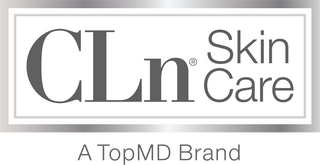
From hormones causing overwhelming emotions to major changes in the physical body, adolescents face a unique range of personal daily challenges that can feel pretty tough to overcome. Among the most common and difficult of those challenges is the acne many kids have to deal with during this time.
Acne is difficult for anyone to deal with, but the emotional toll it takes on kids is especially tough.
Adolescents have a tendency to pick apart both their own appearance and the appearances of their peers. And with social media being the massive influence that it is, teens and pre-teens are constantly facing airbrushed, filtered, and otherwise heavily-edited photos of people they believe they should look like. These impossible beauty ideals can make looking in the mirror with a face full of acne that much more difficult.
Unfortunately, the struggle with adolescent acne is a lot more than simply difficult; acne can cause significant damage to your child’s mental health and well-being.
A research review of 16 studies examining the relationship between acne and psychological states found that, overall, adolescent acne significantly increases your child’s risk of developing low self-esteem and psychological disorders. In fact, a study published in the Journal of Cosmetic Dermatology indicated that depression is two to three times more common in people who have acne versus those with clear skin.
Why Acne is So Difficult for Adolescents
There are a number of reasons that acne can take such a significant toll on a child’s mental health and self-esteem. One likely reason is that children at this age don’t yet have the reins on their emotions; the combination of hormonal changes and a lack of extensive life experience can make many adolescents feel like they’re somehow to blame for their acne, leading to deep shame and embarrassment.
Additionally, there’s no time in life that we’re more closely scrutinized and criticized for our appearance than during our teens. Children at this age can be incredibly cruel to one another and quick to point out what they see as flaws in another child’s appearance.
Moreover, as mentioned, social media can exacerbate this problem by not only presenting impossible standards for what society considers attractive but also providing a platform for teens to pick each other apart.
All of that being said, adolescent acne is no small problem. But the good news is that there’s a lot you can do as a parent to treat and prevent acne for your child.
How to Combat Your Child’s Acne
Use a Proper Cleansing Solution
Using the right cleansing solution is far and away your best line of defense against your child’s acne. Unfortunately, there are a lot of products marketed for acne that are either ineffective or will severely dry out or damage the skin. What you want is a gentle cleanser that’s anti-microbial (AKA combats acne-causing bacteria), anti-inflammatory, and won’t disrupt the delicate barrier of the skin.
Apply a Soothing Moisturizer
After cleansing, it’s a good idea to apply a lightweight moisturizer that will soothe and calm your child’s skin without clogging his/her pores. Look for ingredients such as niacinamide and ceramide, which provide antioxidant and anti-inflammatory properties, and avoid anything that contains sensitizing ingredients like fragrance and parabens (AKA preservatives).
Make Sure Your Child Cleanses at the Right Time
In addition to using a proper cleanser and moisturizer, it’s also important to teach your child to cleanse at the right time. If your child engages in any sports or activities that make them sweat, be sure that he or she washes their face within one hour after playing. This timeframe is important because any longer than that and it becomes much more difficult to slough off acne-causing bacteria. Otherwise, advise your child to cleanse twice daily, morning and night.
Start Solutions at the First Signs of Acne
Don’t wait until your child’s acne gets out of control to begin a routine. It’s best to start a regular cleansing routine at the very first signs as this will go a long way to keeping it under control and preventing mental, emotional, and social problems.
The post The Impact of Acne on Your Child’s Self-Esteem appeared first on CLn® Skin Care Blog.
